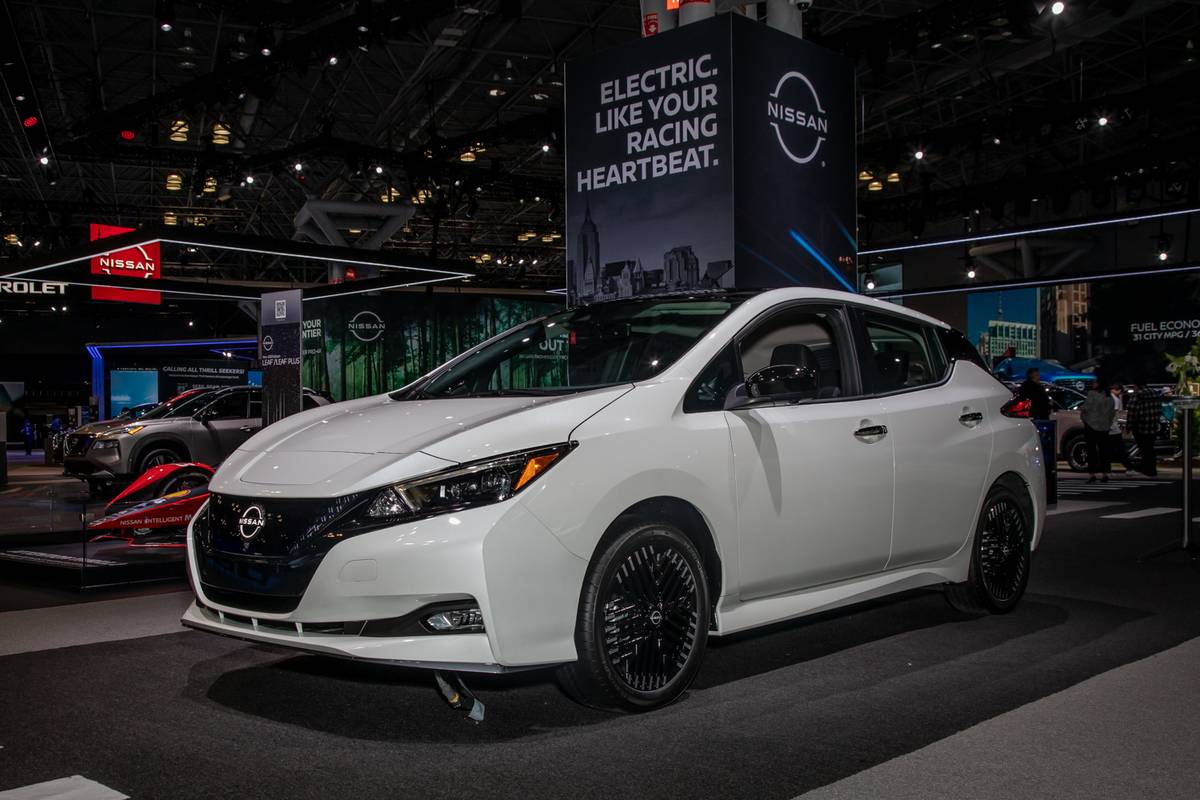The all-electric Chevrolet Bolts have been on a turbulent ride recently. Updated for the 2022 model year, the Bolt EV hatchback was joined by the all-new Bolt EUV SUV. The pair went through a series of recalls followed by a significant price cut, followed by a price increase. In spite of these road bumps, the Bolts remain among the bestselling electric vehicles and make a strong case for value, earning the top spot among EVs in ’s Affordability Report. Now, GM has confirmed the Bolts are approaching the end of their journey and are expected to be discontinued by the end of 2023, according to Automotive News.
Related: 2023 Chevrolet Bolt EV, Bolt EUV Prices Rise as GM Cites Ongoing Industry Challenges
In a letter to shareholders following GM’s first-quarter earnings report on Monday, CEO Mary Barra attributed the company’s 20,000-plus cumulative EV deliveries to record sales of the Bolt EV and EUV. Despite the accolade, however, the automaker announced the Bolts will soon be cut to make room for new battery-powered models including Chevrolet’s Blazer EV, Equinox EV and Silverado EV, and the GMC Sierra EV.
Along with affordable starting prices under $30,000, the Bolt EV and EUV are eligible for the full $7,500 federal EV tax credit, which further enhances their value. Shoppers considering buying a Bolt in the coming months should factor in the vehicle’s availability, price and range to determine if it’s the best choice, then act fast — or choose a rival instead.
Low Price, Tight Inventory
Starting at $27,495 and $28,795 (all prices include destination), respectively, the Bolt EV and EUV currently top the list of cheapest electric cars, but budget-conscious shoppers may have trouble finding one at the dealership. Even though GM says it will continue to produce the Bolts through the end of the year, inventory is already tight, data shows. Just 828 new Bolt EVs were observed among dealers as of March, while new Bolt EUVs totaled 1,351 units. Finding a used Bolt will likely pose a challenge, as well, with 1,325 units of the EV and 340 units of the EUV observed in March. Median prices among dealers were approximately $29,600 for the Bolt EV and $31,200 for the EUV.
The Bolt EV and EUV’s 2023 rivals include the Hyundai Kona EV, Nissan Leaf, Tesla Model 3 and Model Y, and Volkswagen ID.4. The Leaf is the runner-up on the roster of cheapest EVs with a starting price of $29,135; however, it offers notably less range with a maximum EPA rating of 149 miles for the base variant. The Bolt EV and EUV get an EPA-rated range of 259 and 247 miles, respectively.
The Kona EV brings a higher starting price ($34,885), but its range is comparable to the Bolts with up to 258 miles. The base ID.4 starts at $40,290 and gets up to 209 miles of range. The base Model 3 starts at $41,380 and gets 272 miles of range, per EPA estimates; and the base Model Y starts at $48,380 and gets 279 miles.
Among the Bolts’ competitors, the Model 3, Model Y and ID.4’s higher starting prices may be offset by their tax credit eligibility: The base Model 3 is eligible for up to $3,500 in credits, while the Model Y and ID.4 qualify for up to $7,500. (The Leaf and Kona EV do not qualify for the tax credit, as of this writing.) Another alternative to the Bolts will require shoppers to wait a few months: The 2024 Equinox EV is expected to arrive in the fall with a starting price of around $30,000 and an estimated range of 250 miles for the base model, but it hasn’t yet received an official EPA rating.
More From :
- Fire Sale: Chevrolet Cuts 2023 Bolt EV, EUV Prices by Thousands
- 2023 Chevrolet Bolt EV’s Price Cut Makes a Good Thing Better
- 2022 Chevrolet Bolt EV and Bolt EUV: Bow-Tie EVs, Now in Two Sizes
- 2022 Chevrolet Bolt EUV Review: Electric; Useful; Vanilla
- Here Are the New Electric Vehicles Planned by 2026





